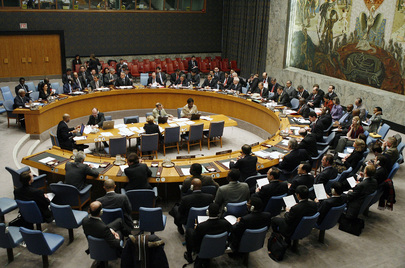Ethiopia wins seat on UN Security Council
By Tesfa-Alem Tekle
June 29, 2016 (ADDIS ABABA) – Ethiopia secured a non-permanent seat on the UN Security Council (UNSC), the most important governing body in the UN, where it will serve a two-year term commencing as of January 2017.

According to a statement issued Today by the Ethiopian government the East African nation secured an overwhelming support of 185 countries out of the 193 UN member states.
The election was held in one round of voting and a candidate nation must win the votes of two-thirds of the member states to win a non-permanent seat in the world body’s powerful organ.
Along with Ethiopia, the general assembly has also elected Sweden, Bolivia and Kazakhstan.
This is Ethiopia’s third time to serve at the United Nations Security Council.
In a congratulatory message he extended from New York, Ethiopian Foreign Minister, Tedros Adhanom, said the General Assembly’s election is a clear indication that the country has won respect and trust of the world.
Government officials here in Addis Ababa today said Ethiopia’s fast economic growth, its diplomatic role and the role it is playing in maintain peace and security have qualified the country to secure a seat now for third time.
Ethiopia wants to be a key player in the UN Security Council’s efforts in maintaining international peace and security.
It has also been actively playing role in contributing peacekeepers to international peacekeeping missions since 1950s.
“Combating terrorism and addressing illegal migration are also among the priorities of Ethiopia during the coming two years,” Tedros added.
Previously the East African country has vowed to boost the role of Africa in the global decision making process which had been dominated by western powers.
Egypt which itself is a non-permanent member was the first country to congratulate Ethiopia and promised to closely work with Ethiopia.
Per the United Nations Security Council’s rotation rules, out of the ten non-permanent seats rotating among the various regional blocs, three are allotted to Africa.
Under the UN Charter, the Security Council has the primary responsibility for international peace and security, with all UN Member States required to comply with Council decisions.
The Security Council has 15 members, including five permanent. The five permanent members, each with the power of veto, are China, France, Russia, the United Kingdom and the United States.
Other current non-permanent members are Japan, Egypt, Senegal, Ukraine and Uruguay.
(ST)
